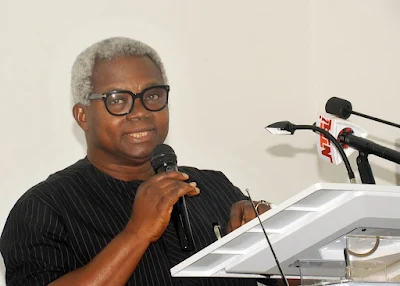Okechukwu Reveals How Buhari Halted Obasanjo’s Third Term Bid and One-Party State Plan
A founding member of the All Progressives Congress (APC), Osita Okechukwu, has revealed the pivotal role played by former President Muhammadu Buhari in blocking former President Olusegun Obasanjo’s alleged third term agenda and ambitions for a one-party state in Nigeria. Speaking at a political forum in Abuja on Friday, August 8, 2025, Okechukwu credited Buhari’s principled stance and strategic opposition in 2006 as a key factor in preserving Nigeria’s democratic integrity during a tumultuous period in the nation’s political history. The remarks, widely shared on X, have reignited discussions about Buhari’s legacy and Nigeria’s democratic evolution.
Okechukwu, a former Director-General of Voice of Nigeria (VON), recounted how Obasanjo, president from 1999 to 2007 under the Peoples Democratic Party (PDP), allegedly sought to amend the 1999 Constitution to extend his tenure beyond the two-term limit. “Buhari rose to his feet in the National Assembly as a federal lawmaker and rallied opposition to Obasanjo’s third term plot,” Okechukwu stated, as reported by Daily Post Nigeria. He described Buhari’s mobilization of lawmakers, civil society, and political allies as instrumental in defeating the controversial bill, which was rejected on May 16, 2006, by a Senate vote of 93 to 4. Okechukwu also claimed Obasanjo aimed to entrench a one-party state by consolidating PDP dominance, a move Buhari’s resistance helped foil.
The third term agenda, widely debated at the time, was seen as an attempt to centralize power, with allegations that Obasanjo’s allies offered bribes to lawmakers to secure support. Buhari, then a senator with the All Nigeria Peoples Party (ANPP), emerged as a vocal critic, warning that the move threatened Nigeria’s fledgling democracy. “Buhari’s courage ensured we didn’t slide into dictatorship,” Okechukwu said, noting that the late president’s actions paved the way for a more competitive political landscape, culminating in the APC’s formation and its 2015 election victory.
The revelation has sparked varied reactions on X. @NaijaGist tweeted, “Buhari stopped Obasanjo’s third term? Okechukwu’s giving him flowers now! #NigeriaPolitics,” while @EagleEyeNG posted, “Buhari as democracy’s savior? That’s a new one, but respect for standing firm in 2006.” Critics, like @TruthSeekerNG, countered, “Okechukwu’s rewriting history to polish Buhari’s image. Many others fought that battle too.” The comments come amid ongoing reassessments of Buhari’s legacy following his death in 2024, with supporters highlighting his anti-corruption stance and critics pointing to economic challenges during his 2015-2023 presidency.
Okechukwu’s remarks also touched on Buhari’s broader contributions to Nigeria’s democracy, including his role in fostering opposition unity against the PDP’s dominance. The PUNCH noted that the failed third term bid led to Obasanjo’s endorsement of Umaru Yar’Adua as his successor, a move that shifted Nigeria’s political trajectory. Political analyst Dr. Chidi Amuta told Vanguard News, “Buhari’s opposition in 2006 was a defining moment, but it was a collective effort—civil society, media, and lawmakers all played a role.” The controversy remains a pivotal chapter in Nigeria’s political history, with parallels drawn to current debates about electoral integrity and power consolidation.
